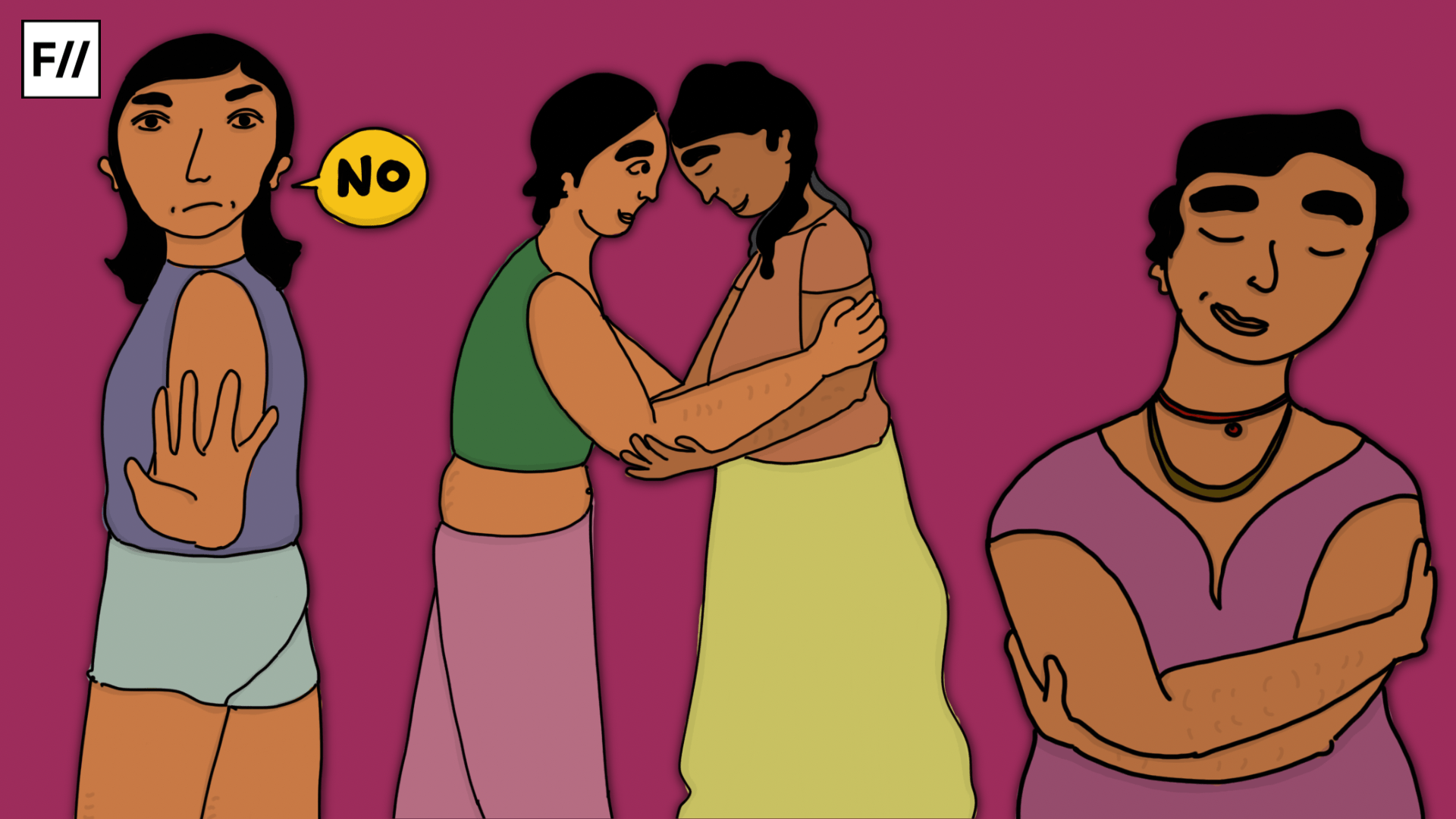Motherhood. A word that is supposed to fill a woman with joy and unconditional love (or so I hear). Something a girl cherishes and desires from the day she gets a hold of her new dolls (or so I hear). A path that is as inevitable as finding love, or buying a house (or so I was told).
Also Read: Postpartum Depression: Deromanticizing Motherhood
I’ve been married four years now, without having a trickle of these above mentioned feelings seep into me. Give it time, someone says. Or just do it, you will love it, I promise, someone else echoes.
The doctor was deeply perturbed to know that even though I’d been married 4 years, I’d decided not to have a child.
The minute a woman becomes thirty (of course this applies to only married women in Indian context, the only communion out of which a child must arise), one of these two things happen. One, she becomes pregnant because haven’t you heard, it’s impossible to get pregnant after 30! And two, if she by some miracle decides not to get impregnated just yet: a barrage of aunts, relatives and doctors descend on her happiness, willing her to quickly rectify the situation because haven’t you heard, it’s impossible to get pregnant after 30!
During one of my bi-annual visits to Delhi, I decided to go for a checkup to a doctor who my mother had immense faith in. The man was deeply perturbed to know that even though I had been married for four long years, I had decided not to have a child.
Doctor: Why don’t you want a child?
Me: I don’t, not as yet anyway.
Doctor: Bohot ho gayi masti. (Don’t be a child! You need to grow up! – the irony is not lost on me).
Me (Staring at him in shock as to the relevance of the above)
Doctor: Do you know you won’t be able to have a child as you get older, you are already 32!
Me: Yes, I do know.
Doctor: You anyway have PCOD. You will have so much problem to conceive.
Me: Umm ok? (Thinking to myself: isn’t it awesome then, that I don’t want a child and I probably can’t conceive naturally anyway? Win-Win right?)
Doctor: The purpose of the womb is to have a child. You are not fulfilling that purpose. If you don’t have a child you will develop cancer. Because the womb without a child will do that to your body.
Me: WTF?? (in my head obviously)
society treats pregnancy or the lack of it as the prerogative and burden of women.
Needless to say, I left in a huff and didn’t go back to that doctor. But this is not the first time this happened. When I was diagnosed with PCOD at the age of 22, I was told by a gynaecologist in Delhi – you should have a child as soon as possible. And there I was 22, with zero prospect of any romantic interlude in the imminent future (there was no Tinder back then), contemplating the gravity of statement just uttered to me.
So yes, I had heard this before.
However, the way the society treats pregnancy and the lack of it thereof, as the prerogative and burden of women, is rooted in antiquity. Yes, the physiological burden of pregnancy cannot be shared by anyone else but the decision and the subsequent consequences arising from it should be shared equally among the partners. So, questioning a woman alone about her proclivity for pregnancy and leaving the man out of such a conversation is where the problem and the imbalance inherently begins.
Also Read: Motherhood As A Choice And Not An Inevitability
This is not the only bias that we face, research has also to some extent, misguided people on female fertility. In an article published in the Atlantic in 2013, Jean Twenge, a professor of Psychology in San Diego State University, highlights that the data on which most of these panic pregnancy sermons are based on, such as – 1 in 3 women between 35-39 will not be able to conceive, actually comes from data of French birthing records from 1670-1830. So yeah, how can one extrapolate anything in this age of modern medicine based on this archaic data is beyond me.
An article published in Obstetrics and Gynaecology in 2004 (Dunson et al.) finds that with intercourse twice a week, 92% of women between 19-26, 86% of women between 27-34 and 82% of women between 35-39 will be able to conceive. Now that’s only a difference of 4% points between the latter two groups. (And no this data is not from the middle ages but from European cities between 1992-1996).
the data on which most of these panic pregnancy sermons are based on comes from French birthing records from 1670-1830.
Research hasn’t been completely objective either, with most research focusing on female fertility (Hello patriarchy!). However, a recent study has found that the male age also has an impact on fertility, but no one seems overtly concerned with that, do they? Tell me how many times men get to hear “time is running out, my son” lectures?
Laura Dodge at Beth Israel Deaconess Medical Center and Harvard Medical School in Boston found that “Women aged under 30 with a male partner aged 30 to 35 had a 73% chance of a live birth after IVF. But that impressive success rate fell to 46% when the man was aged 40 to 42”.
So, ladies, maybe there is merit in finding a younger guy then?
Featured Image Credit South China Morning Post:




